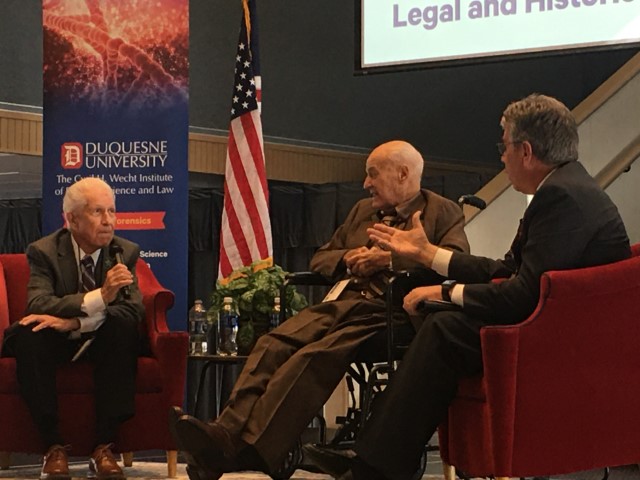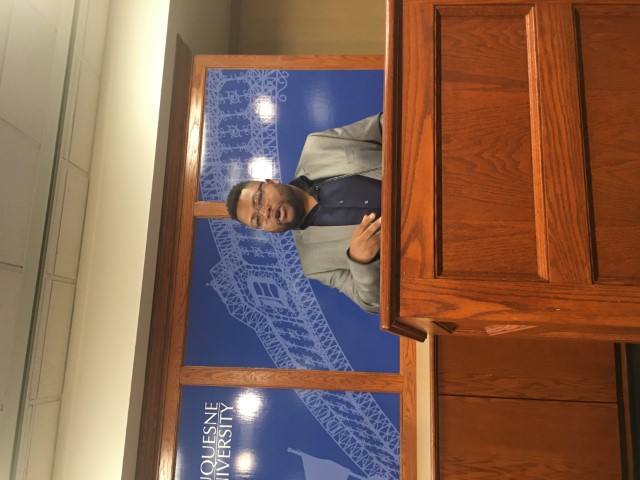Support for a highly successful November conference examining the 1963 assassination of President John F. Kennedy highlighted the 2023 activities of Citizens Against Political Assassinations (CAPA), with CAPA leaders promptly beginning planning for 2024 activities at the first post-conference board meeting on Dec. 2.
For 2023, CAPA focused heavily on supporting the once-every-decade JFK conference organized by The Cyril H. Wecht Institute of Forensic Science and Law at Duquesne University in Pittsburgh.
This year’s event from Nov. 15 to Nov. 17 provided a powerful speaker program, along with special events that included a CAPA banquet honoring Dr. Cyril H. Wecht, M.D., J.D., CAPA’s founder and chairman, as well as a dedication of his research collection to Duquesne University in a ceremony led by Pennsylvania Gov. Josh Shapiro. The governor told the audience that Dr. Wecht’s expertise, courage and civic dedication through the decades has inspired him, as it has for so many others locally and around the world.
The speaker program, “The JFK Assassination at 60,” was organized around the theme “New Frontiers in Scientific, Medical, Legal and Historical Research.” Events began with dedication of the Wecht Collection, with tributes aside from the governor’s including one by Duquesne University President Ken Gormley.
The opening keynotes were by Barbara Perry, a University of Virginia historian, on “Why JFK’s Camelot Endures – and Why It Still Matters,” and by TV and film star Alex Baldwin, who is also a serious JFK assassination researcher, speaking on “Why JFK Assassination Will Not Go Away.” Baldwin stated when he hosted a show on MSNBC a decade ago he supervised research for an episode about JFK’s death planned for the 50th anniversary of the killing but his show was cancelled for unexplained reasons before broadcast and the material was never aired.
The speaker program contained too many other prominent experts providing their research findings to mention here except for a few highlighted speakers who have gained prominence outside of JFK research circles.
One was former Secret Service Special Agent Paul Landis, who made his first in-person conference speaking event following publication of his memoir, “The Final Witness: A Kennedy Secret Service Agent Breaks His Silence After 60 Years.” Landis, age 28 and in a car directly behind the slain president’s at the time of the shooting in Dallas on Nov. 22, 1963, was never interviewed by the Warren Commission for its report in 1964. His recollections were considered so significant by the New York Times that its Chief White House Correspondent Peter Baker wrote a long story about them concurrent with book publication. Dr. Wecht and Duquesne University’s president led a dialogue with the former agent that probed his findings and their implications.
Among other prominent speakers was Rob Reiner, the two-time Emmy winner who introduced the podcast he directed for years, “Who Killed JFK?” His conclusion was that the murder was perpetrated by four shooters, firing a total of between seven and eleven shots – a scenario far different from that proposed by the Warren Commission, whose official verdict repeated by its supporters until current times was that one man, Lee Harvey Oswald, planned and effectuated the killing.
Many speakers disputed that Warren Commission finding based on science, witness testimony or other compelling grounds.
Two highlights that especially involved CAPA were a banquet in which the organization bestowed a Profile In Courage Award on its founding chairman. CAPA featured also a video from one of his 1990s lectures demonstrating based on forensic evidence that all the known shots could not possibility have come from the accused killer, Oswald, who had claimed that he was a “patsy” before he himself was murdered at a Dallas police station, thwarting trial.
CAPA also introduced at the banquet Irving Nestor, a videographer whom CAPA had hired to prepare a 3-D video montage of Dallas Dealey Plaza locale where JFK was killed. The video montage is intended to aid assassination researchers even if the Dallas locale changes.
Afterwards, CAPA’s chairman, drawing on his long experience, commented, “This was the most successful program we have ever had in terms of speakers, attendance and money.” Speaking at a CAPA board meeting, he continued, “I can’t tell you how many calls and emails I’ve received from people telling me this.”
This reporter, a founding member of CAPA, introduced a resolution unanimously adopted by the board praising board members Glenda Devaney and Gary Bleiweiss for extraordinary volunteer efforts in vital areas. The former was recognized for leadership in managing event logistics and member communications for CAPA this year and the latter for succeeding as CAPA Treasurer Michael Nurko, a CAPA co-founder who seconded the resolution.
CAPA’s board also initiated planning to resume holding its own annual conference in Dallas in 2024, building on the success of this year’s hybrid event.
—
Andrew Kreig, author of this column, is an investigative reporter and attorney based in Washington, DC, who helped cofound CAPA in 2015
